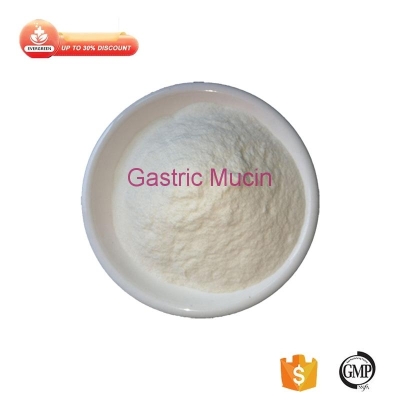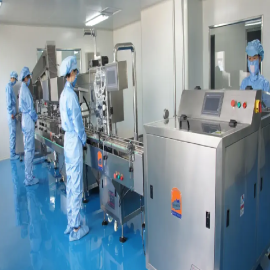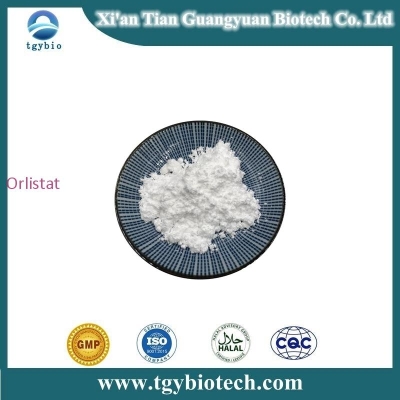-
Categories
-
Pharmaceutical Intermediates
-
Active Pharmaceutical Ingredients
-
Food Additives
- Industrial Coatings
- Agrochemicals
- Dyes and Pigments
- Surfactant
- Flavors and Fragrances
- Chemical Reagents
- Catalyst and Auxiliary
- Natural Products
- Inorganic Chemistry
-
Organic Chemistry
-
Biochemical Engineering
- Analytical Chemistry
- Cosmetic Ingredient
-
Pharmaceutical Intermediates
Promotion
ECHEMI Mall
Wholesale
Weekly Price
Exhibition
News
-
Trade Service
Abstract: Zeng Songjun's research group at the School of Physics and Electronic Science, Hunan Normal University has designed a novel endogenous H2S-triggered cobalt-doped POM-Co nanoprobe, which can achieve cyclic self-aggregation, controllable biodegradation and sustainable consumption ofH2S/GSH in response to H2S, which can be successfully used in synergistic enhanced tumor-specific photothermal and chemokinetic combination therapy
。
Keywords: H2Scyclically activated nanomaterials, self-assembled nanoprobes, controlled biodegradation, precise/sustainable cancer treatment
.
Colon cancer is currently one of the three most common cancers in the
world.
Many treatments for colon cancer have been developed, but these traditional treatments are often accompanied by various side effects
.
Chemokinetic therapy (CDT) is a new, minimally invasive therapy that selectively induces apoptosis and necrosis
by converting overexpressed hydrogen peroxide (H2O2) in tumors into active oxides.
However, the efficacy of CDT is still limited by the complex tumor microenvironment (highly expressedH2Sand GSH)
of colon cancer.
Therefore, reshaping the tumor microenvironment of colon cancer by reducingH2Sand GSH is extremely urgent and still faces great challenges
to improve the efficacy of CDT in colon cancer.
Photothermal therapy (PTT) is another new type of minimally invasive and controllable treatment in recent years, providing new opportunities
for the treatment of colon cancer.
However, most photothermal agents tend to exhibit sustained thermal effects and non-specific treatments, causing inevitable damage
to normal tissues surrounding the tumor.
In addition, inorganic nanoparticles remain in the body for a long time, posing a great threat
to health.
Therefore, the construction of biocontrollable degradable nanoprobes with endogenousH2Sintelligent response is of great significance
for the realization of sustainable, precise and specific treatment of colon cancer.
Based on the above problems, Professor Zeng Songjun's research group of Hunan Normal University designed an endogenousH2Sintelligent response Co-doped POM-Co nanocluster for the treatment ofH2S-richcolon cancer
.
After the designed nanocluster is activated byH2S, it forms a large-size POM-CoS through self-assembly, which can not only effectively enhance the accumulation of tumor sites, but also activate its photothermal properties at the same time, so as to realize specific photothermal treatment
of tumors.
Moreover, the formed POM-CoS can be gradually biodegraded, releasingCO2+ andMo6+ for Co(II)-catalyzed •OH generation and GSH-depleting Russellmechanism activated1O2 production
, respectively.
More importantly, the designed nanoprobe has cyclic degradation and aggregation characteristics, which can continuously removeH2S/GSH and produce reactive oxygen species to achieve precise and sustainable treatment
of colon cancer.
Therefore, this research provides a new strategy for designing biodegradable tumor microenvironment-driven smart nanoprobes, bringing new opportunities
for the realization of precise and sustainable anti-tumor therapy.
WILEY
Paper Information:
Recyclable endogenous H2S activation of self-assembled nanoprobe with controllable biodegradation for synergistically enhanced colon cancer-specific therapy
Junqing Huang, Zhiming Deng, Shenghui Bi, Xingwang Wen, Songjun Zeng*
Advanced Science
DOI: 10.
1002/advs.
202203902
Click "Read Original" in the lower left corner to view the original paper
.
Advanced
Science
Introduction to the journal
Advanced Science is a high-quality open source journal founded by Wiley in 2014, publishing innovative achievements and cutting-edge progress
in various fields such as materials science, physical chemistry, biomedicine, and engineering.
In an effort to maximize the dissemination of scientific research to the public, all articles are freely available
.
Included in Medline, available on PubMed
.
The latest impact factor is 17.
521, and the 2021 SCI journal of the Chinese Academy of Sciences is divided into Q1 area of material science category and Q1 area
of engineering technology category.
AdvancedScienceNews
Wiley's official WeChat platform for scientific research information
Long press the QR code to follow us
Share cutting-edge information | focus on scientific research trends
To publish research news or apply for information sharing, please contact: ASNChina@Wiley.
com







